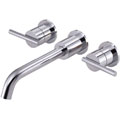
From about age 50 it becomes increasingly common among the male population that the flow of peeing diminishes meaning more time spent up against the urinal as compared to their younger bystanders. As age ticks by this flow may become a pathetic trickle. Associated with this is disturbed sleep due to the constant urge to get up for a pee that is more a dribble than anything else.
John (not his real name) was a successful business man in his mid 60's. Things had been very stressful at work lately due to staffing issues and these came to a head while he was overseas negotiating an important export deal. On the last day of his trip, he discovered to his great distress that he could no longer pee! By the time he arrived home, he was in serious trouble with his bladder close to bursting and blood pressure was going through the roof. This was a medical emergency and he was rushed into hospital for prostate surgery and drastic medication to lower his BP. He lived, but was very unwell for weeks afterwards and he struggled to recover his vitality. John soon sold his business for less than he might otherwise have got for it.
__________________________________
While we are not sure about what is exactly going on, other than the fact that the prostate gland migh be enlargening and impinging on the urethra, we do know that the problem can be reversed in some cases just by diet and lifestyle. I am not sure exactly why the following advice works, or exactly which of the lot is most important; but very good results have been had.
Try this if you have noticed any decline in flow and see what happens:
- Take 2-4 tablets per day of Nutra-Life Super Calcium Complete for three months
- Take 1-2 tablets per day of Kordel's Super B Executive for three months
- Take 1-2 tablets per day of Kordel's Super Antioxidant for three months
- Take 2-4 table spoons per day of Waihi Bush Flaxseed Oil for three months
- Get 5 minutes of sunlight on your body each day for vitamin D while exercising
The magnesium, calcium and other minerals are essential for health, including the ability for nerves and muscles to function properly. This includes the smooth muscle that controls peeing flow. Magnesium may be a factor in prostate gland health. Deficiencies can build over many many years. More of these are needed in times of stress and ill health.
The B group of vitamins are essential for health and may be a factor with keeping the prostate healthy. More of these are needed during times of stress and ill health.
The Super Antioxidant formula mops up damaging free radicals that harm healthy tissue. These can have a mild anti-inflammatory effect.
The flaxseed oil is natures richest source of Omega3 oil. This has numerous health benefits including a mild anti-inflammatory effect.
Vitamin D is essential for a robust immune system. If the levels are low, as they often are, your risk of developing all kinds of cancers increases.
If any improvement in pee rate is noticed by three months you should continue the course of supplementation for several more months. The gradual restoration of pee flow may continue for a year or more, so be patient and monitor progress carefully.
From about 35 years of age, it is a good idea to have an annual checkup with the Doc including a prostate exam. This is important to try to detect any serious medical issues that might be looming early in their development.
How safe is this supplementing advice? Side effects are too numerous to list here; they include, better skin, hair and nails, reduced cardiovascular disease risk, strong bones and muscles and generally feeling great!
1 comment:
Zinc is important for proper prostate functioning, Zinc is deficient in New Zealnd soils, supplementing with Zinc has proven to help aleviate prostate problems. its a relatively non toxic element, excess gets readily excreted from the body.
Post a Comment